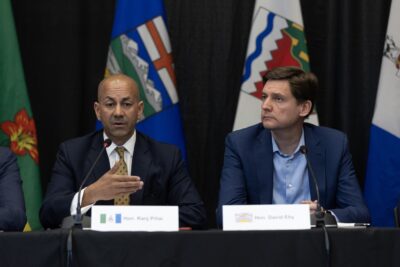Experts say linking Yukon, B.C. power grids a ‘game-changer’ but will take time
By Canadian Press on May 26, 2025.

Experts say the potential linking of British Columbia’s power grid with Yukon would be a game-changer for the territory’s quality of life and economy, but realization would likely take more than a decade.
University of Calgary professor Jason Donev says Canada’s north generally lacks the electricity infrastructure taken for granted in the south, and the lack of cheap, reliable power in many communities weighs on development.
Donev says the remote locations and long distances involved in linking the B.C. and Yukon power grids would present “significant engineering and technical challenges.”
B.C. Premier David Eby and Yukon Premier Ranj Pillai last week signed a memorandum of understanding to explore connecting the grids.
Rosa Brown with clean-energy think tank the Pembina Institute says similar projects have shown it would take “a decade-plus” to progress from a memorandum of understanding to an actual power link.
Brown says a feasibility study a decade ago determined the link was too costly, but fresh factors ranging from Ottawa’s higher interest in nation-building projects and increased demand in Yukon for electric heating and vehicles have likely shifted the calculation.
The B.C. government says the signing of the memorandum — which took place at the Western premiers conference — would mean opportunities for the province to connect its clean electricity to critical resource mining and other projects in Yukon.
The University of Calgary’s Energy Education website says the closest point where Yukon’s grid could connect to B.C. would require at least 900 kilometres of transmission lines as well as a number of intermediate substations.
This report by The Canadian Press was first published May 26, 2025.
Chuck Chiang, The Canadian Press
13-12




